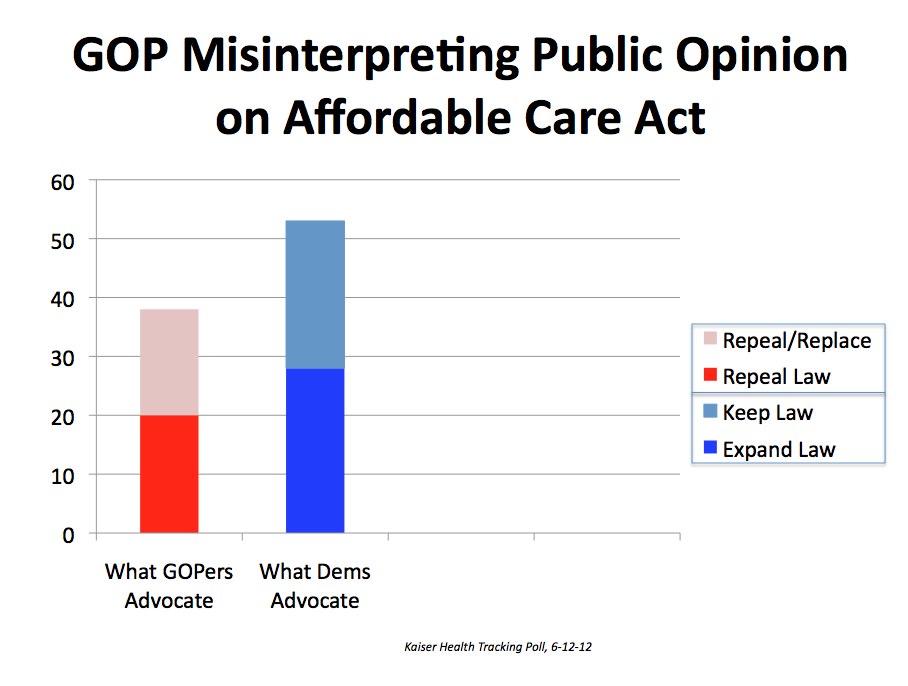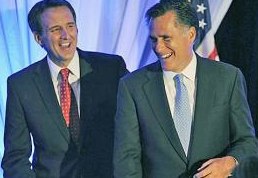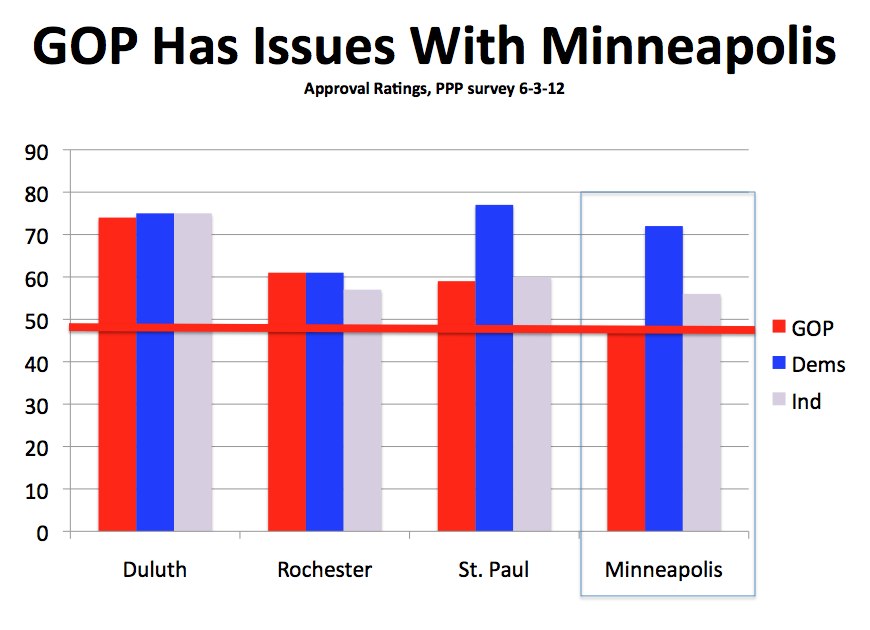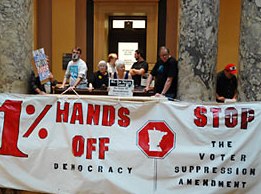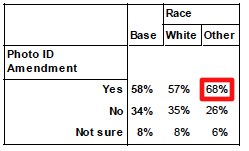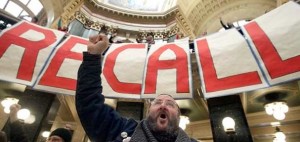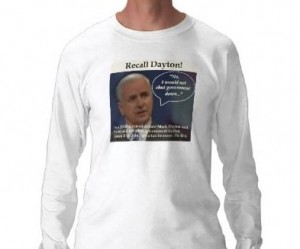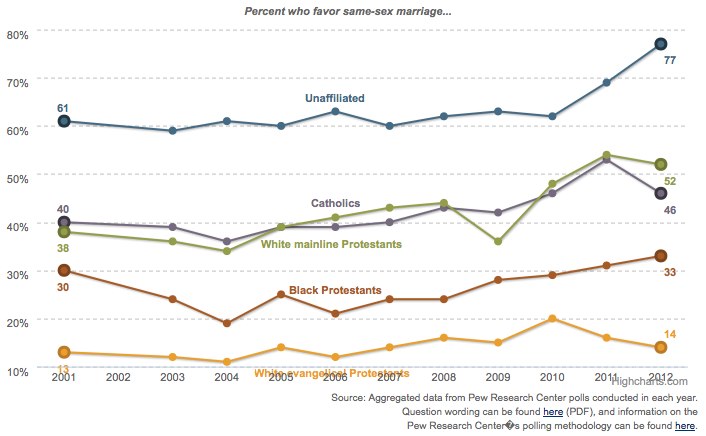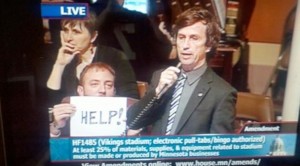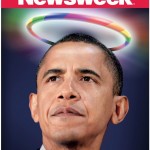“All politics is local,” Democratic House Speaker Tip O’Neill famously proclaimed. To question this proclamation in DFL activist circles is a bit like questioning the Gospel in church circles.
But, unusual times dictate that the DFL candidates for the State Legislature broaden their messaging beyond the predictable O’Neilian “I brought home the bacon” messaging. After all, the reality of these fiscally austere times in St. Paul is that Minnesota legislators have been bringing home festering carcasses, not bacon, and that is not going over real well locally.
(Incidentally, at the congressional level, New York Times whiz kid Nate Silver makes a compelling case that “all politics is local” hasn’t been true for a long time.)
Therefore, in 2012 I’d argue “all politics is local” is a dumb strategy for for DFL legislative candidates. This year, the Minnesota DFL should use more of a statewide messaging and media strategy than they typically do.
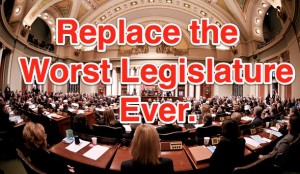 I nominate this theme for a statewide TV and radio campaign to serve as an overlay for individual candidacies:
I nominate this theme for a statewide TV and radio campaign to serve as an overlay for individual candidacies:
“Replace the worst Legislature ever.”
Real subtle, right? And I’m not kidding. This rallying cry works because it is simple, provocative, sticky, and, most of all, true.
Just ask the people of Minnesota. The current GOP-controlled legislature is the proud recipient of a 19 percent approval rating, which appears to be the lowest approval rating anyone can find on record.
Ponder on that for a moment. The worst approval rating ever. This is a truly putrid moment in Minnesota political history. Therefore, the minority party needs to make “worst Legislature in history” the rallying cry of a unified TV and radio campaign to unseat the majority party that gave this special gift to Minnesotans .
Such a campaign might sound something like this:
Who says the Republican-controlled Legislature is the worst in Minnesota history?
Minnesotans. In surveys, Minnesotans give this current Legislature the lowest approval ratings in the entire history of our state.
Not just lousy. Not just terrible. The. Worst. Ever.
Why?
Their shameful use of our local school funding as their own personal ATMs.
Their bizarre obsession with policing Minnesotans’ personal lives.
Their stubborn refusal to take a balanced approach to the state budget.
Their reckless shutdown of our state parks and government.
For the past two years, Minnesotans have watched all of this in horror.
Now, it’s time to send a clear message: It’s time to replace the worst Legislature in Minnesota history…and move forward with a new Legislature, and a fresh start.
Tying together legislative races into more of a statewide campaign would mean the DFL would need to focus much more than usual on statewide messaging and media, and much less on localized messaging and media. That’s an extremely unpopular proposition with local candidates, who want the campaign to be more about them personally. But in times like these, statewide political leaders need to have the courage to seize the historic political opportunity before them.
Many voters – particularly the much larger group of less active voters that turn out in presidential election years – don’t know much, or anything, about the candidates in down ballot races. A memorable theme can guide them. “Replace the worst Legislature ever” does that. “Support good old Senator Bob because he brings home the bacon” does not.
So sorry, Tip, this campaign needs to focus on the smelly statewide whole, not the local parts. This year, the DFL can, and should, run a unified statewide campaign against the the Republican Party’s Frankenstein — the Legislature that Minnesota citizens say is the worst ever.
– Loveland
Note: This post was also featured as part of the “Best of the Blogs” feature in Politics in Minnesota’s Morning Report.

